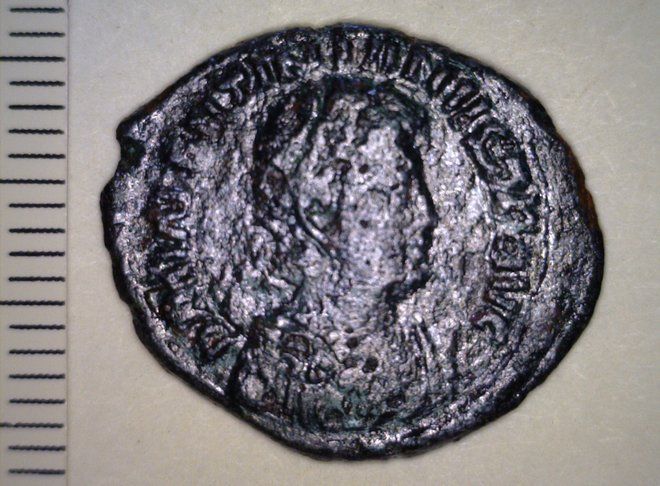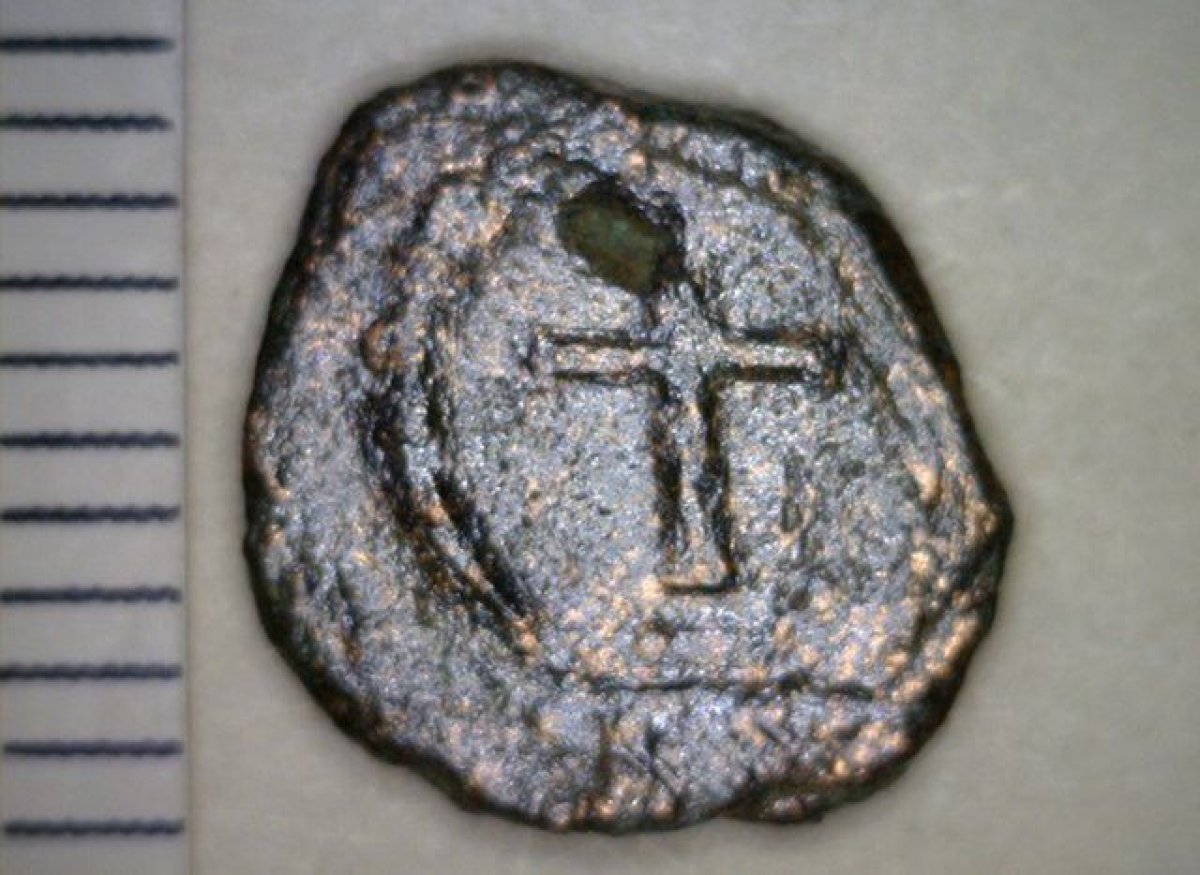
Updated | Archaeologists found 115 bronze coins buried underneath the remnants of a house that collapsed in the ancient Greek city of Corinth 1,500 years ago. The coins themselves are a great archaeological find, but scientists are puzzled as to why they remained hidden for over a thousand years.
In summer 2016, Paul Scotton, chair of comparative literature and classics at California State University, Long Beach, began leading an excavation at the Lechaion Harbor of Ancient Corinth in Greece, a CSULB press statement reported. Now, the dig has revealed an interesting new find, the 115 bronze coins that date to the original destruction of the harbor, about 600 A.D., Live Science reported.
Michael Ierardi, a professor of classics at Bridgewater State University in Massachusetts, who is helping with the excavation, told Live Science that he estimates the oldest coins date to the time of the Roman Emperor Constantine the Great, who reigned from A.D. 306 to 337. The most recent coins likely date to the Byzantine Emperor Anastasius, who reigned from A.D. 491 to 518.
The biggest mystery is not when they coins are from, but why they are still there. According to Live Science, the coins were found only a few inches beneath the ground, and it's not clear why their owner did not come back to retrieve them after the home collapsed.

"Its notable that something so close to the modern surface was left," Scotton told Newsweek. "There is some reason that the owner did not come back."
Related: Greece: Subway construction unearths ancient Aphrodite statue and stunning mosaic floors
Scotton told Newsweek that evidence shows that the harbor was destroyed by natural disasters and rebuilt many times. However, the harbor was not rebuilt after it's final distruction and part of the mystery of the harbor is figuring out why this was.
"What was it at that time that different from all the previous times when they rebuilt," said Scotton.
Along with the coins, the team also has found two large Roman civic basilicas, a type of building structure popular in the ancient Roman Empire. They suspect that these buildings were once government buildings. One basilica was dated to the end of the first century into the second century. According to a statement on the discovery, this means that the basilicas can likely be dated to the early Roman colony, founded by Julius Caesar.
The team will continue to dig at the ancient site with no end date in sight yet.
"There is so much being done and so much to be done," said Scotton. "I joke that my grandchildren are going to be working here."
Correction: An earlier version of this story incorrectly stated that the coins were dated to the destruction of the city in 600 B.C. They were dated to the destruction of the harbor in about 600 A.D.
Uncommon Knowledge
Newsweek is committed to challenging conventional wisdom and finding connections in the search for common ground.
Newsweek is committed to challenging conventional wisdom and finding connections in the search for common ground.
About the writer
To read how Newsweek uses AI as a newsroom tool, Click here.








